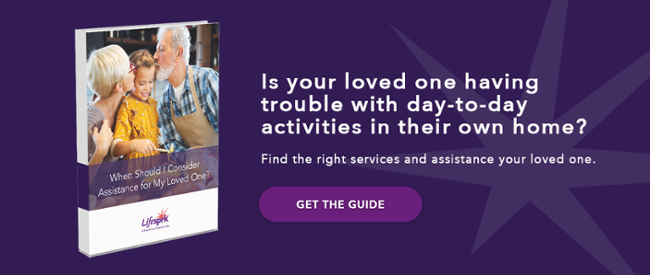
Your aging parent has been discharged from the hospital…now what? How important are those discharge papers, do you really need to pay attention to every item they’ve listed once your loved one is home? Actually, following through on those discharge plans as you transition home is critical. Your next move could make or break sending your aging parent right back to the hospital.
Care transitions is a term being used in the health care industry to describe the hand-off that takes place when you leave the hospital, rehab or skilled nursing facility, or even from the emergency room to a hospital floor. Regardless of where you are transitioning between, the reason for a care transitions effort is this: without a solid care transition program in place, many people find themselves returning to the hospital for things that could have been avoided. Why? Because as seniors are discharged, they may find themselves overwhelmed or simply too tired to comprehend all the information provided. Or they may say ‘yes, I understand’ to all those questions the nurses had asked just to get home faster. Learning how to navigate senior care with your aging parent may be new territory for you and you may not even know the right questions. But now that your older loved one is home, do you remember the discharge plan? What is your plan to follow-up with your parent’s doctor? Do you have someone to advocate for your aging parent? Does it matter? Yes it does.
According to an article in the Annals of Long-term Care on “One Patient, Many Places,” poorly executed transitions are associated with inefficiencies, potential medical errors, and duplication of tests and services that needlessly increase the cost of care by leading to greater utilization of hospital, emergency room, post-acute, and ambulatory services. Basically, if you don’t stick to the plan it can lead to a return to the hospital, and what Lifesprk describes as the roller coaster of crisisTM begins.
As a caregiver for an older loved one, here are a few things you should know about care transitions:
- Different providers: Hospitals, skilled nursing facilities (SNFs), transitional care units (TCUs), and even clinics have developed care transitions programs to address the common issues seniors face as they move from one setting to another. Not all care transitions programs are alike; some address just the transition from the TCU to home, and others follow seniors for up to 30 days from their hospital discharge. Most are time-limited meaning they provide some added support and reassurance – usually through phone calls – for a brief period after hospitalization. Your loved one may end up with several care managers each from different providers who are assisting with one segment of your older loved one’s path from hospital to home.
- Transition Call: Part of the services your senior might expect once they are home is a transitions call from the hospital after they discharged and another one after they get home from the TCU. If you are in charge of your aging parent’s care, make sure you are on that call list. A series of calls may continue for up to 90 days after the hospital discharge, but most end after 30 days. Use these calls to ask questions and voice concerns.
- In-Home Senior Care: Care transition programs can also involve in-person visits in the hospital, TCU, physician’s office, and even the senior’s home. Again, these are usually time-limited and don’t replace the need for home care. Some in-home care providers, like Lifesprk, can also help offer more in-depth support that works with the care transition teams to help you optimize senior’s transition home for increased independence and control long-term.
Bottom-line: Care transitions are a step in the right direction to help break the roller coaster of crises, so seniors can focus on more important things. We encourage you to play a role in your or your aging parents’ transition plan. Know the right questions to ask and stick to the discharge plan. Lifesprk Life Care Managers (nurses), because they work with you and your older parent long-term, can play a pivotal role in providing continuity with all providers including care transitions teams across all settings to smooth your loved one’s transitions.
For more information on care transitions, please contact a Lifesprk Navigator at 952-345-0919 or email ShineOn@lifesprk.com.



